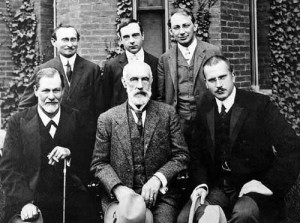“For psychotherapy to be effective a close rapport is needed, so close that the doctor cannot shut his eyes to the heights and depths of human suffering. The rapport consists, after all, in a constant comparison and mutual comprehension, in the dialectical confrontation of two opposing psychic realities. If for some reason these mutual impressions do not impinge on each other, the psychotherapeutic process remains ineffective, and no change is produced. Unless both doctor and patient become a problem to each other, no solution is found.” -C.G. Jung, Memories, Dreams, Reflections, p. 167.
These sentences remind me of times earlier in my life where I sought out the help of a psychotherapist, but found myself across from a clinician who did not intend to see me or my suffering. What an alienating experience. Fortunately, soon I found someone who made room for me and what I was going through and allowed my experience to impact her. I’m always shocked to hear from clients about negative therapy experiences they’ve had in the past. Really, they said what to you?! It takes emotional energy and focus on the part of the therapist to let the client’s suffering in. It’s not an option to remain separate, unaffected. As Jung says, therapy brings together two psyches and creates a vessel in which profound changes can begin to take place. Such a relief to be heard….





